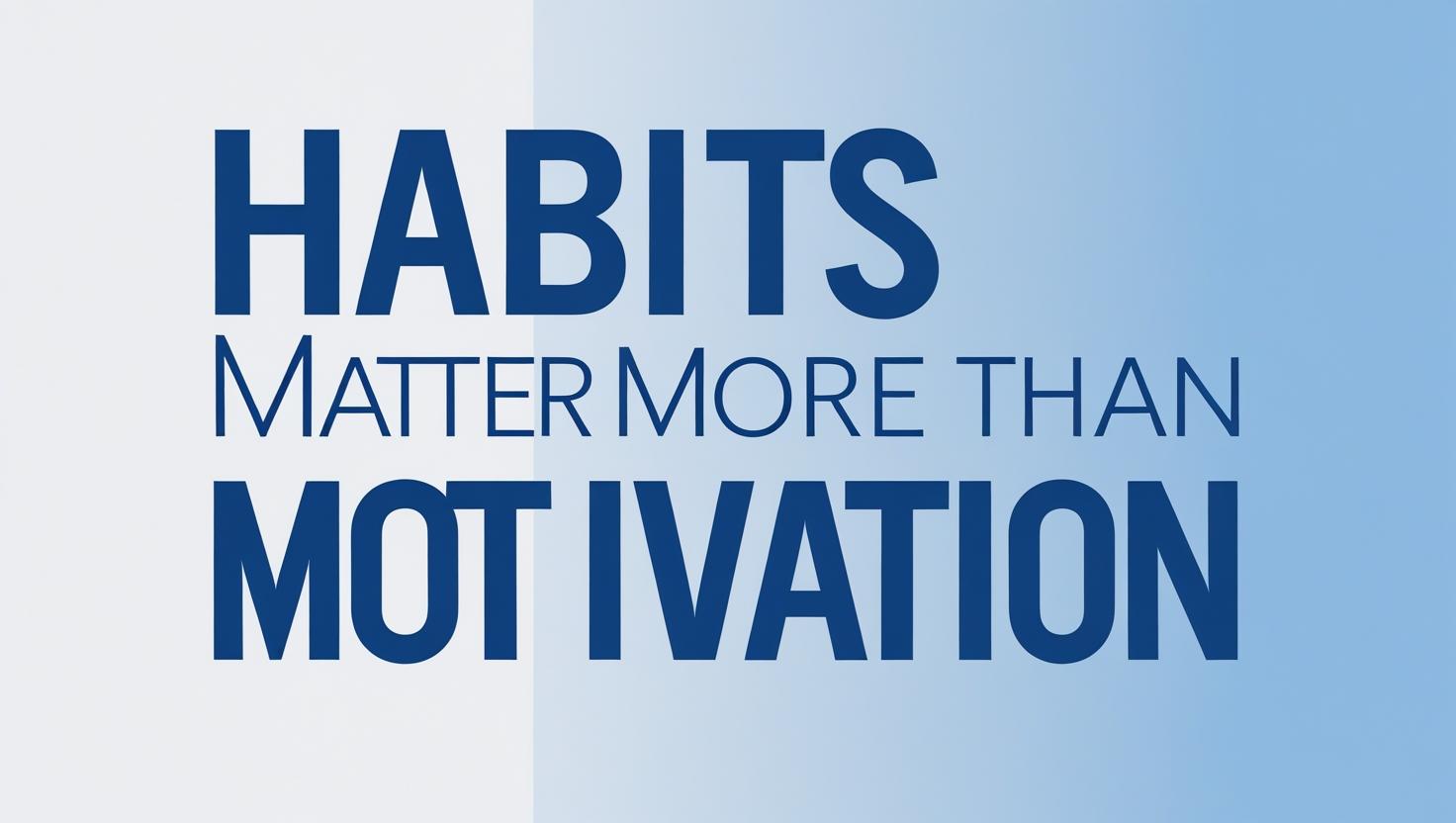
Why Daily Habits Keep You on Track (Even When You’re Tired and Unmotivated)
By Dr. Mary Kelly, Economist and Leadership Expert
Most days, I love my work. I wake up excited to tackle the day, connect with clients, and make progress on my projects. But every now and then, life catches up with me.
The other day was one of those rare days.
After a whirlwind of travel, speaking engagements, and the physical and emotional work of moving my 93-year-old mother into Assisted Living, I was simply… tired. Not just physically tired, but the kind of mental fatigue that makes you think, “Maybe I’ll just take a day off.”
But I did not. I could not. I only have a few office days a month and I felt like I was behind.
So, I got up. I went through my normal morning routine. I made the coffee, took care of my personal rituals, opened the laptop, and started working through my plan for the day. Was I brimming with enthusiasm? No. But I made progress.
The reason? Daily habits.
Habits Matter More Than Motivation
Motivation is wonderful when you have it. But motivation is like a guest that does not always show up on time. If we wait to feel inspired before we act, we risk falling behind on the goals we have set for ourselves.
Habits, on the other hand, do not ask how you feel. They just happen because you have wired them into your day. They are the autopilot systems that keep your business, your health, and your life moving forward, even on the days when your energy is running on fumes.
The Role of Structure in Sustained Success
I have been in leadership, business, and the military long enough to know structure is freedom.
When you have a plan — and you work that plan — you remove the mental load of deciding what to do next. Your habits carry you when your willpower is low.
For me, that means:
- Starting the day at the same time, regardless of how I feel.
- Following a consistent morning routine — personal care, hydration, coffee, and review of my plan.
- Tackling the most important business task first.
- Keeping my environment ready to support work, not distract from it.
These are not just tasks. They are anchors — small, non-negotiable actions that pull me back toward productivity.
Habits Protect You from “Decision Fatigue”
On tired days, your brain is already short on energy. Without habits, you are constantly making decisions:
- Should I work now or later?
- Should I start this project or that one?
- Should I just take the day off?
Every decision cost mental bandwidth. Habits eliminate those choices because you have already made them in advance.
When I was on an adult swim team our practices were at 5:30 in the morning. That means getting up at 4:50, putting on a swimsuit, driving to the pool, and then swimming for an hour before most people wake up. It was worse when it was snowy and cold outside. Staying in bed seemed like a good idea.
If I let myself decide at 4:50 am if I were going to the pool, I would never make it. No, the decision was made when I committed to the team. There was no temptation to sleep in because the decision to go swimming was already made. I did not allow myself to second-guess that decision at 4:50 am.
Consistency Beats Intensity
High performers often think it is all about the big push, the all-nighter, the heroic effort. But real, long-term success comes from consistency.
If you can do what matters most — even at 70% effort — every single day, you will outpace the person who works at 100% when they feel like it.
How to Build Habits That Carry You
- Start small. Anchor your day with two or three simple, repeatable actions.
- Tie habits to triggers. For example, “After I make my coffee, I write my top three tasks.”
- Protect your environment. Make it easy to start, hard to get distracted.
- Track the wins. Even if you are not feeling inspired, seeing a streak of days completed is motivating.
- Have a plan. Know exactly what “doing the work” means for you.
The Takeaway
That day, my habits kept me in motion. I did not accomplish everything on my list, but I kept the momentum going. I stayed in the game.
We all have days when energy, focus, or motivation run low. That is when your habits matter most. They are the quiet, reliable systems that keep your business, your life, and your goals on track.
Sometimes the most productive thing you can do is simply show up and do the work, even if you do not feel like it.

Great article, friend!
Hi Anne! Thank you. 🙂
Another good lesson to start my day. At my age, I am happy to start each day with goals and projects. Years ago, an elder sporting goods representative told one of our new salesman, “plan your day and work your plan”. You just said the same thing. Be safe.
Steve, My Dad used to say that all the time! “Plan your work and work your plan.” I find it is so helpful to remember when I get overwhelmed. Thanks so much for your note!
This is powerful advice and one I need reminded of on a regular basis. Thank you for the logical, encouraging approach and advice!
You are so welcome, Diana. Glad the article was helpful to you!
Another great reminder, not only for ourselves but good habits are so important to establish with our children as they grow through all their school years.
That’s an excellent point, Judy. Thank you!